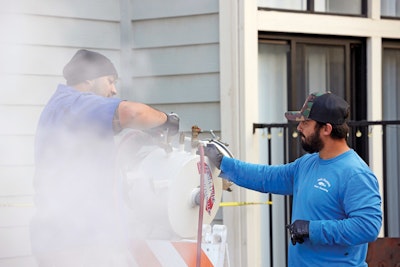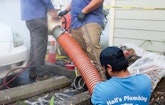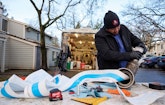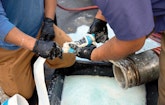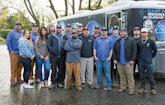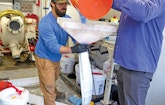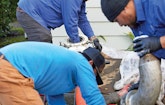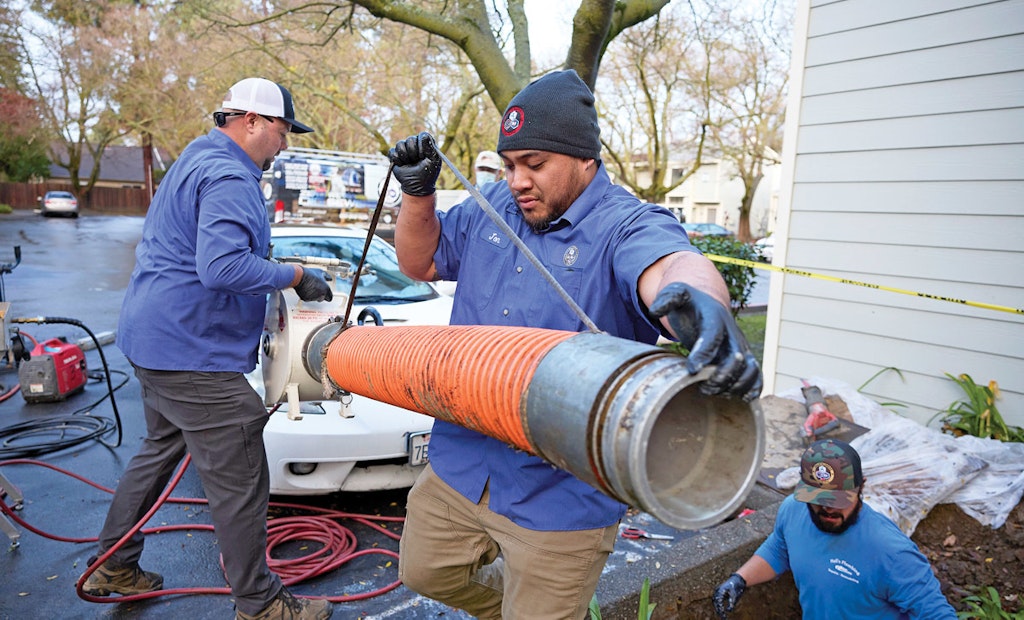
Hall’s Plumbing foreman Joe Garin and technicians John Kim and David Montoya (from left) prepare equipment for a pipelining job.
Metropolitan areas with large populations and diverse economic bases present plenty of opportunities for a plumbing company. Chris Reynolds, owner of Sacramento-based Hall’s Plumbing, is trying to capitalize on as many of them as he can.
To do so, Reynolds has expanded beyond...
